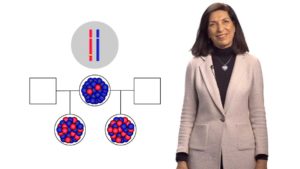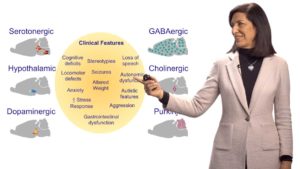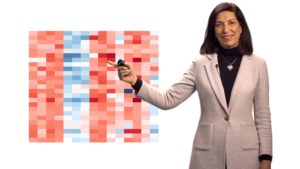Dr. Huda Zoghbi is the Ralph D. Feigin professor at Baylor College of Medicine, an investigator at the Howard Hughes Medical Institute, and the director of the Jan and Dan Duncan Neurological Research Institute at Texas Children’s Hospital. She started her studies in biological sciences and did one year of medical school at the American University of Beirut in Lebanon. But due to the Lebanese Civil War, after her first year of medical school she moved to the United States and completed her medical degree in 1979 at Meharry Medical College. She did her pediatric residency at Baylor College of Medicine and Texas Children’s Hospital. She continued her training as a fellow in pediatric neurology at the Baylor College of Medicine. Realizing the plight of children with devastating neurological diseases of unknown causes she pursued postdoctoral training in molecular biology and genetics with Dr. Arthur L. Beaudet in 1985. Since 1988, Zoghbi has been a faculty member at Baylor College of Medicine where her lab uses genetic, biomedical, and cell biological approaches to study brain development and degeneration. She is particularly interested in understanding neurodegenerative diseases and Rett syndrome.
Zoghbi has worked with Rett Syndrome patients since 1983, and it was her curiosity about the genetics of this disease that led to the discovery of MECP2 as the gene responsible for this sporadic neurological disease. For her scientific contributions, Zoghbi was awarded the Breakthrough Prize in Life Sciences (2017), the Canada Gairdner International Award (2017), and the Shaw Prize in Life Science and Medicine (2016). In addition, she is an elected member of the American Academy of Arts and Sciences (2018), the National Academy of Sciences (2004), and the National Academy of Medicine (2000).
Visit her lab website, and learn more about Zoghbi’s research.








